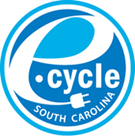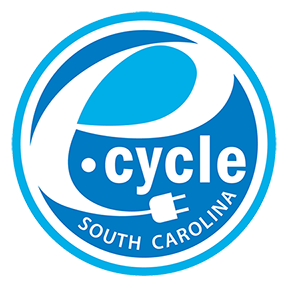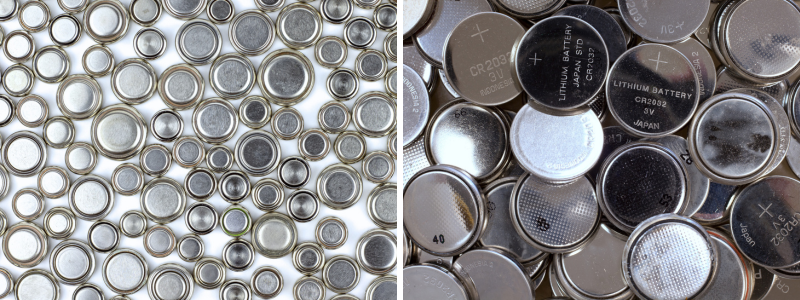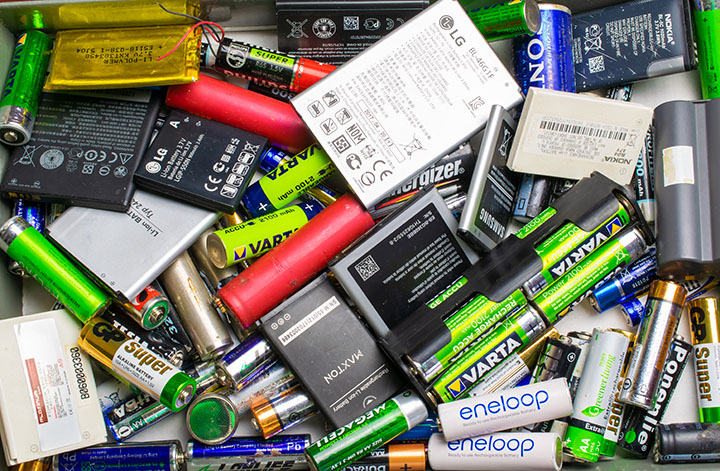
Batteries can and should be recycled.
Lithium-Ion Batteries
Lithium-ion (Li-ion) batteries are everywhere.
Li-ion batteries – the most popular rechargeable batteries – come in multiple sizes and shapes. They power everything from smart phones, laptops, hand-held power tools, and E-bikes to scooters, toys, and electric cars.
Be Safe at Home
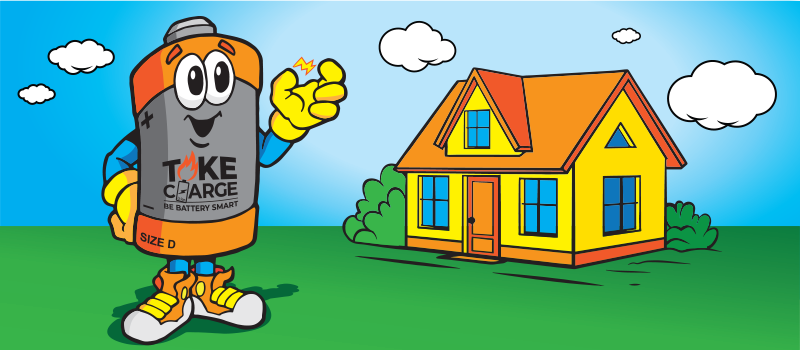
All batteries – both single-use and rechargeable – can be dangerous to your health and home if the manufacturer’s instructions are not followed.
Battery Identification
Batteries are broadly classified into primary and secondary categories. Primary batteries are for one-time use whereas secondary batteries are rechargeable.
Both types of batteries are further classified depending on the chemicals they contain. The result – sometimes confusing – is that batteries come in various chemistries, types, and sizes to fit different uses.


